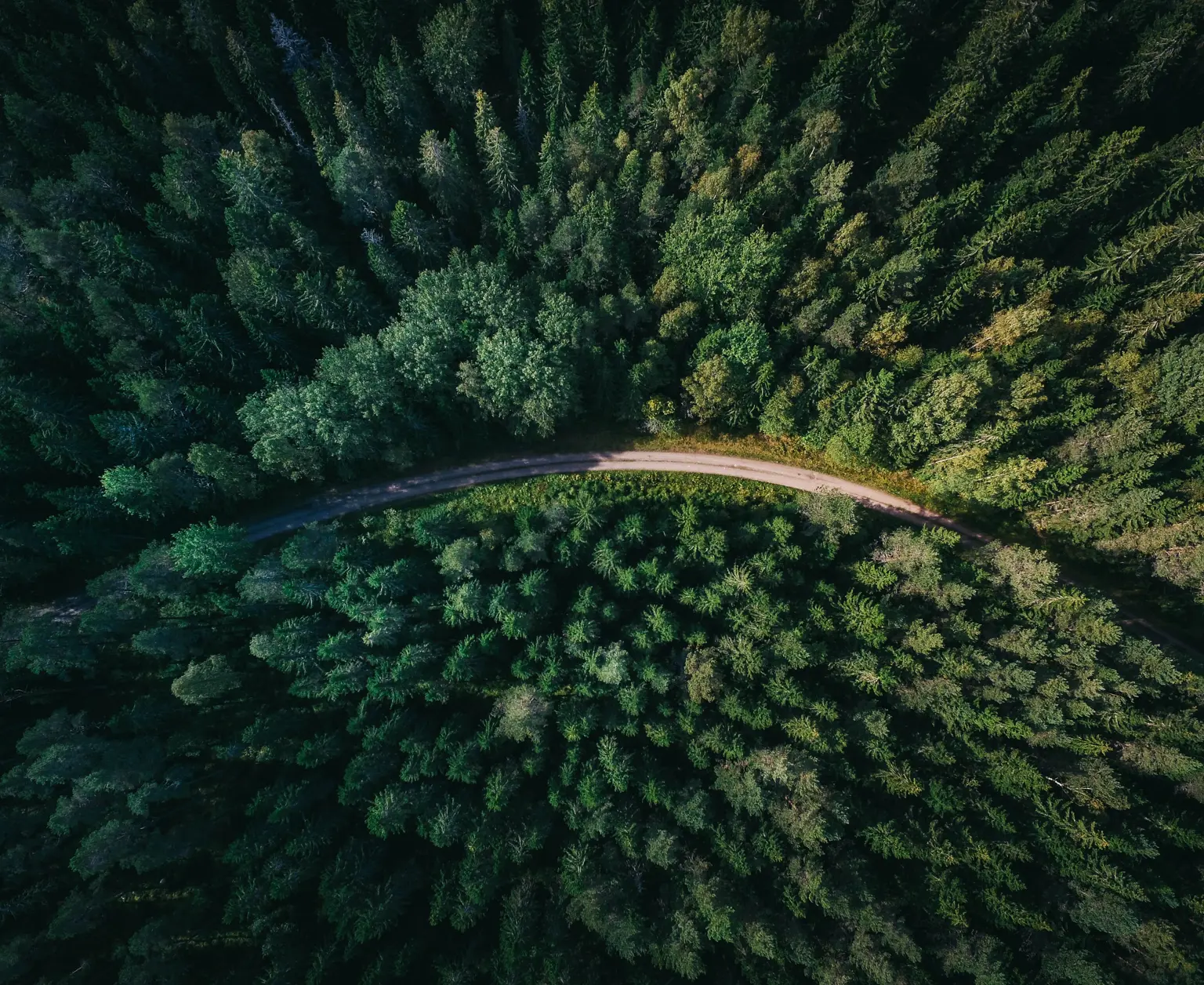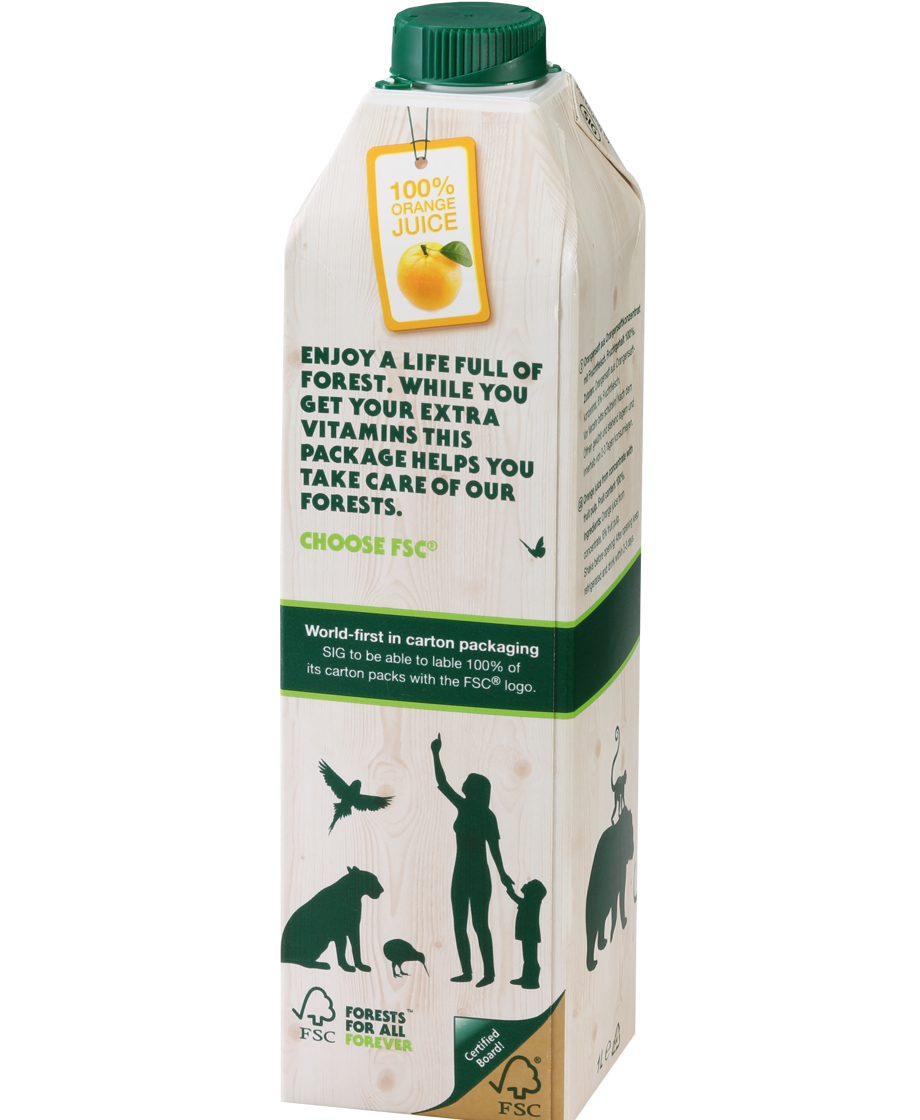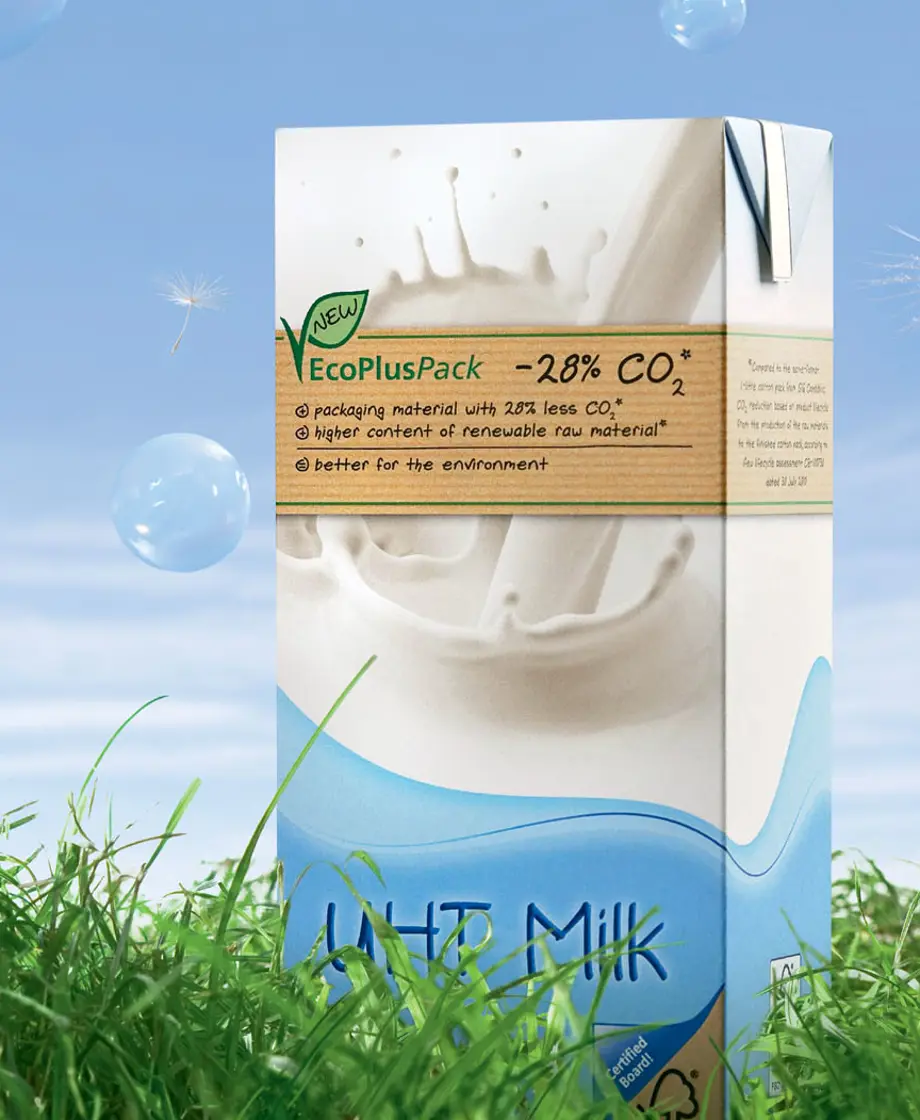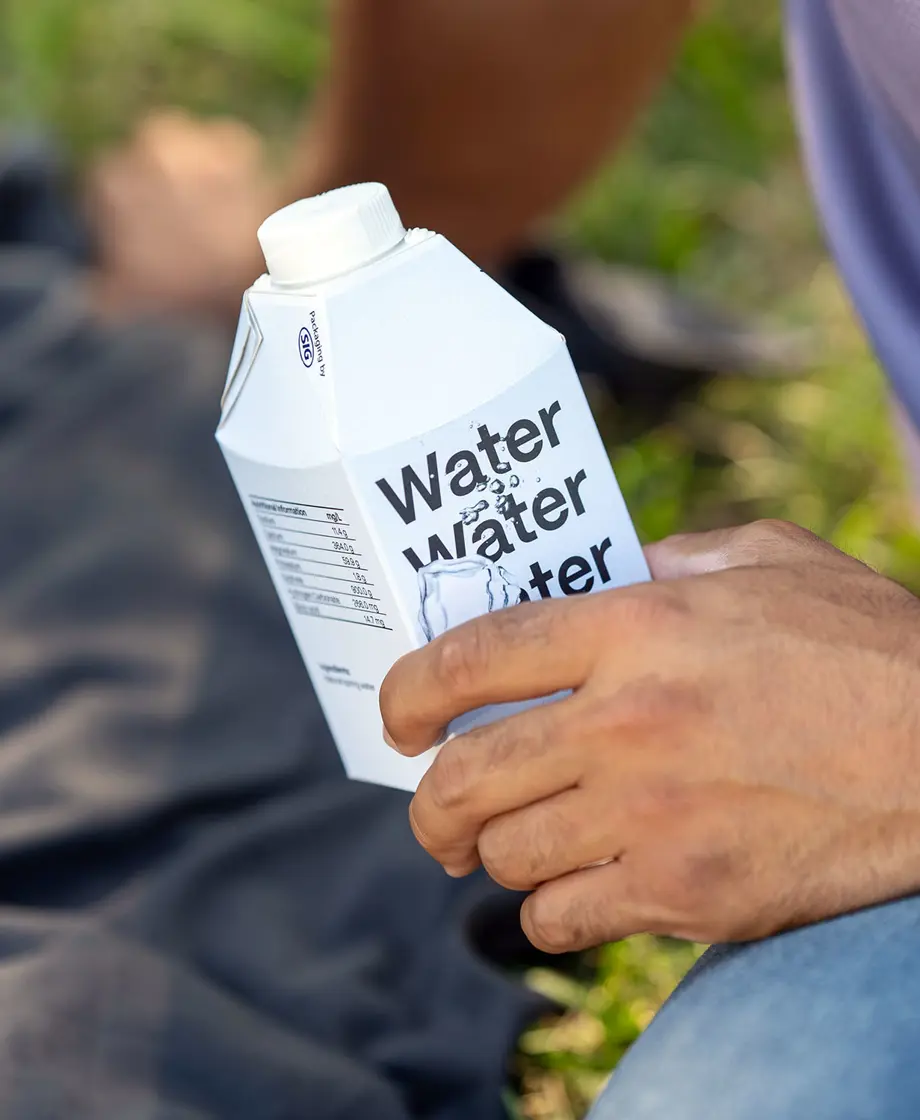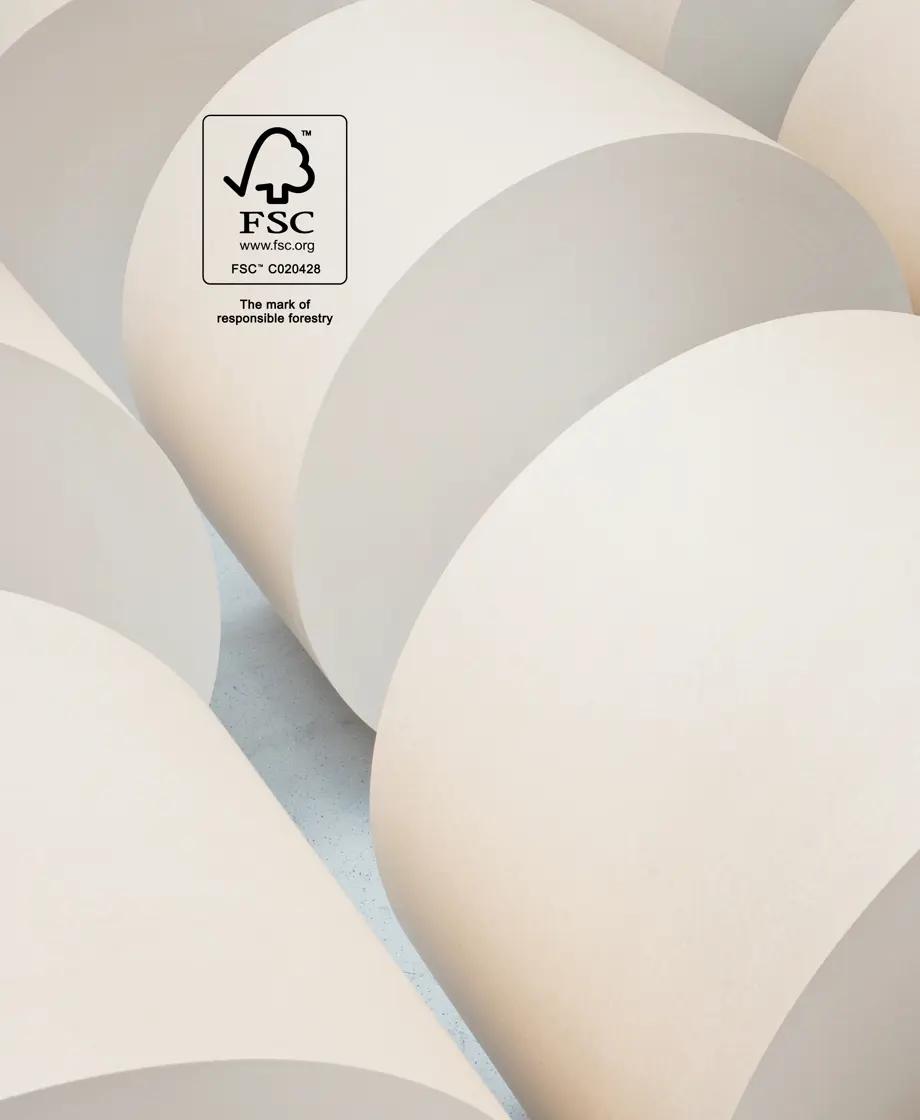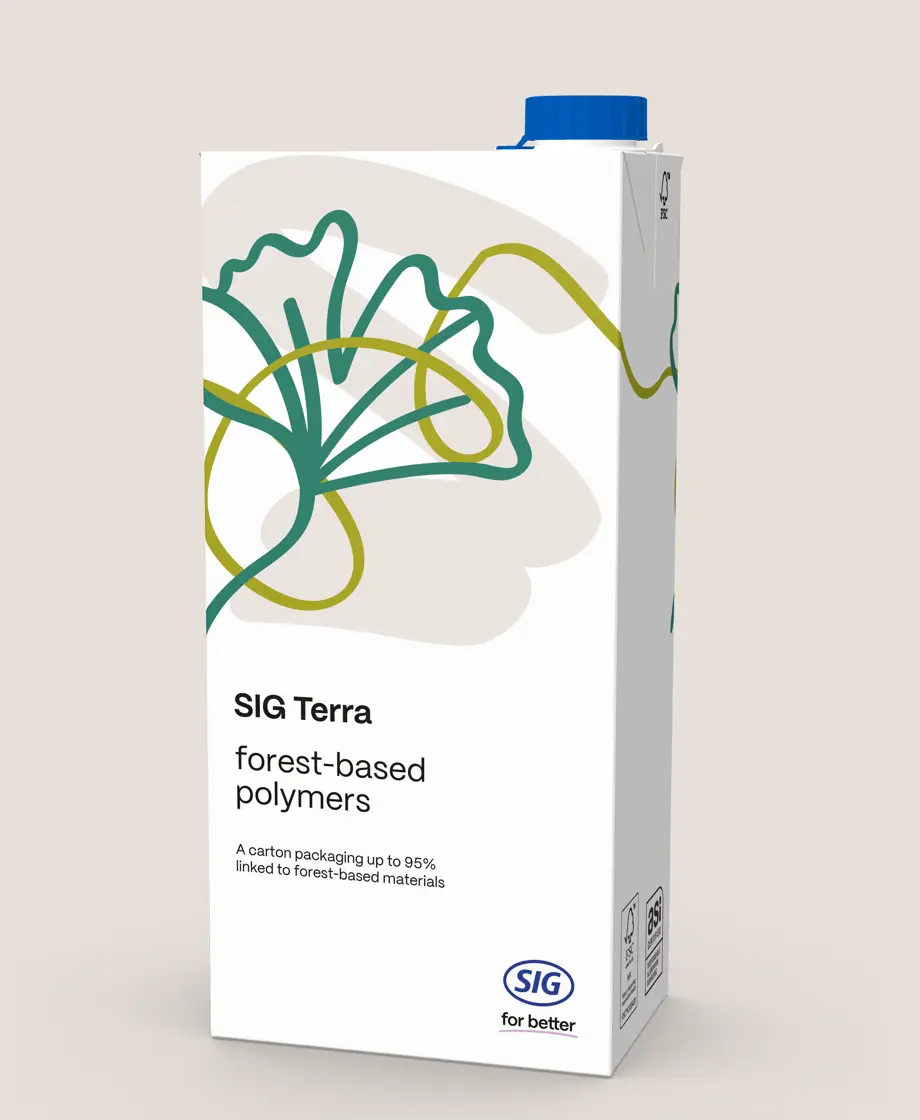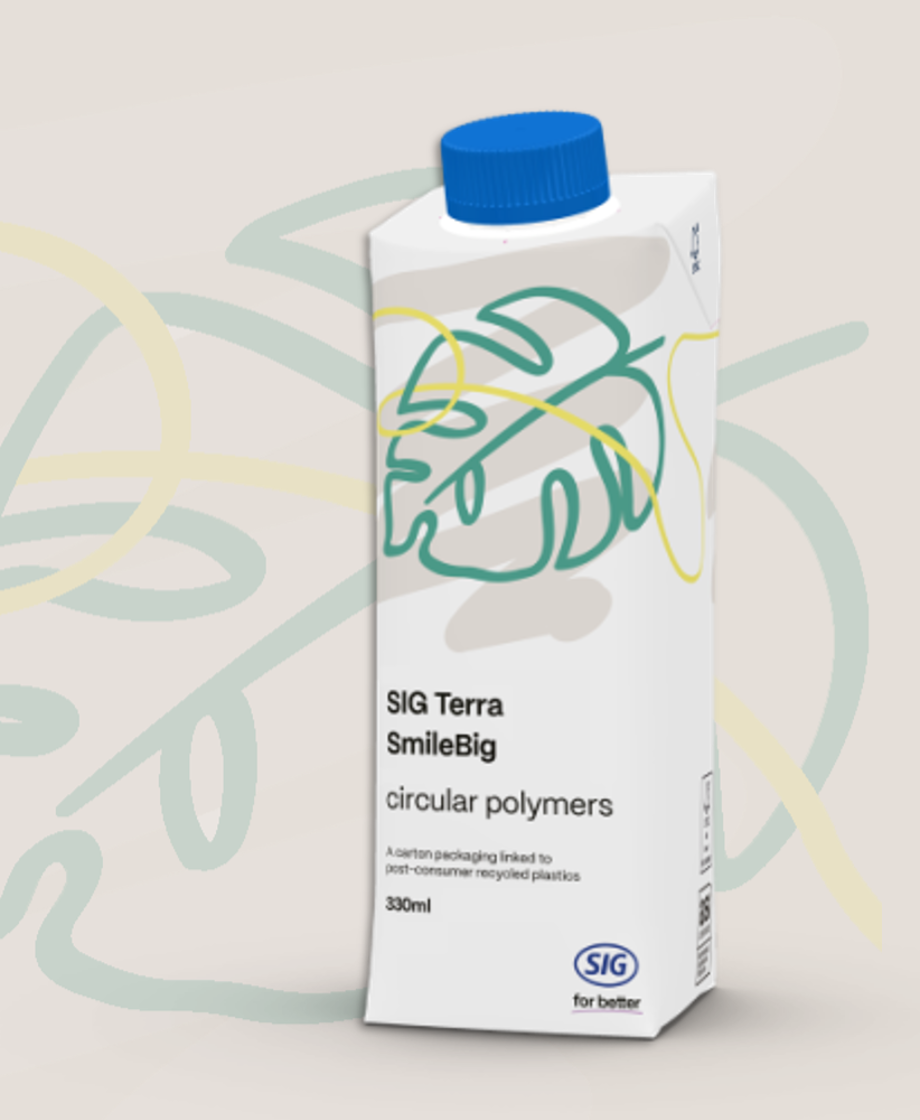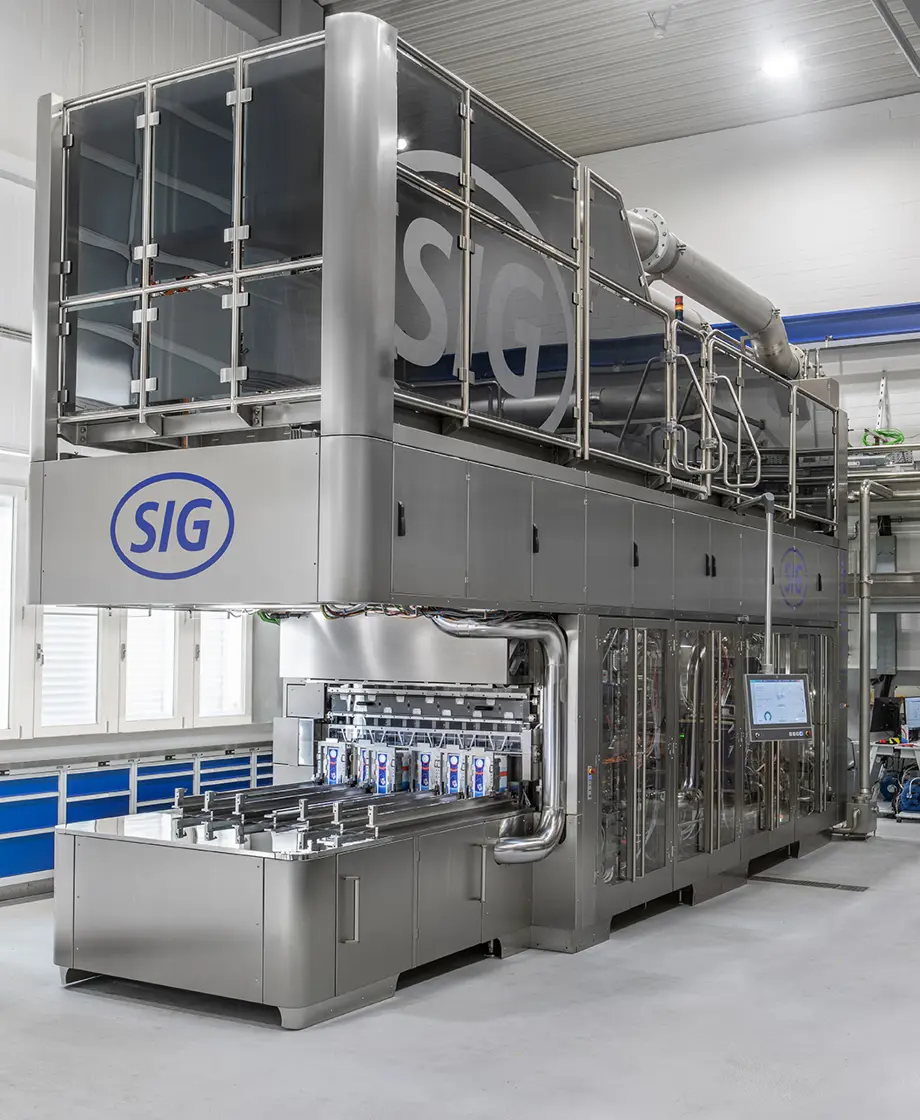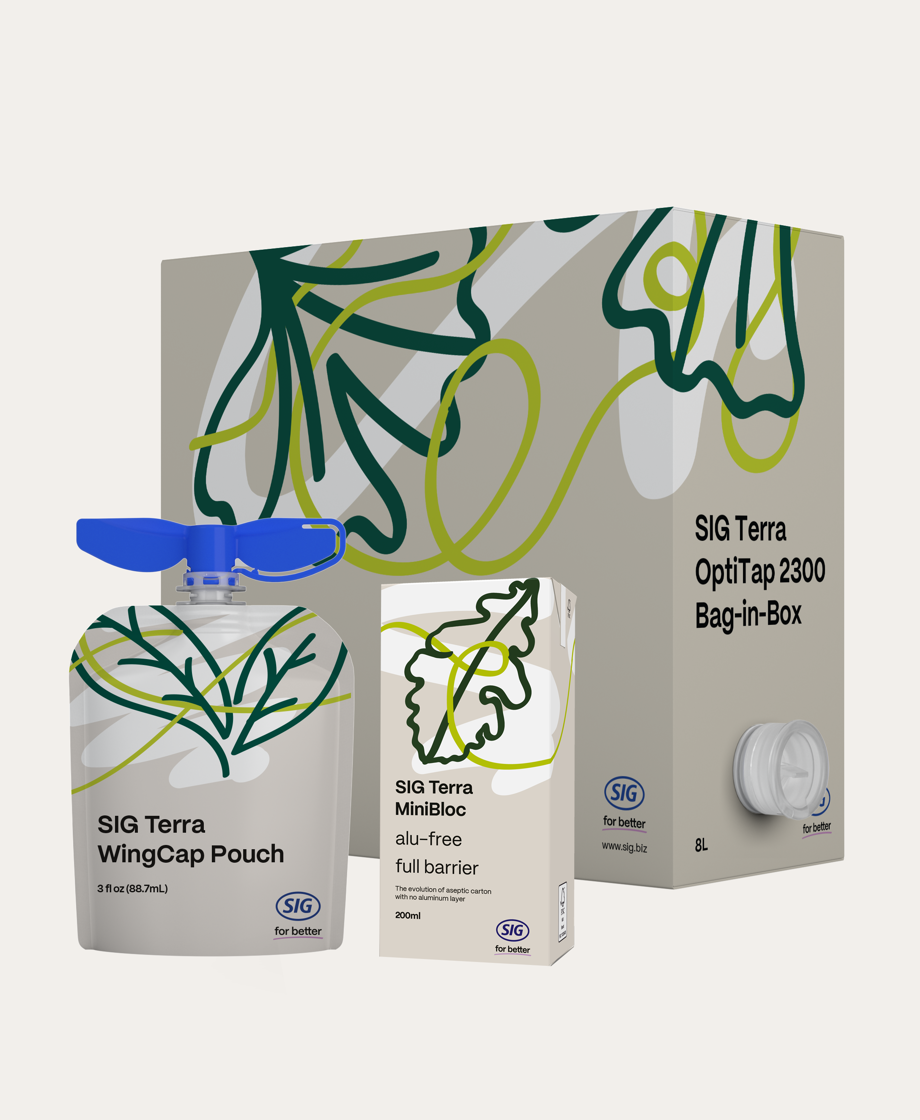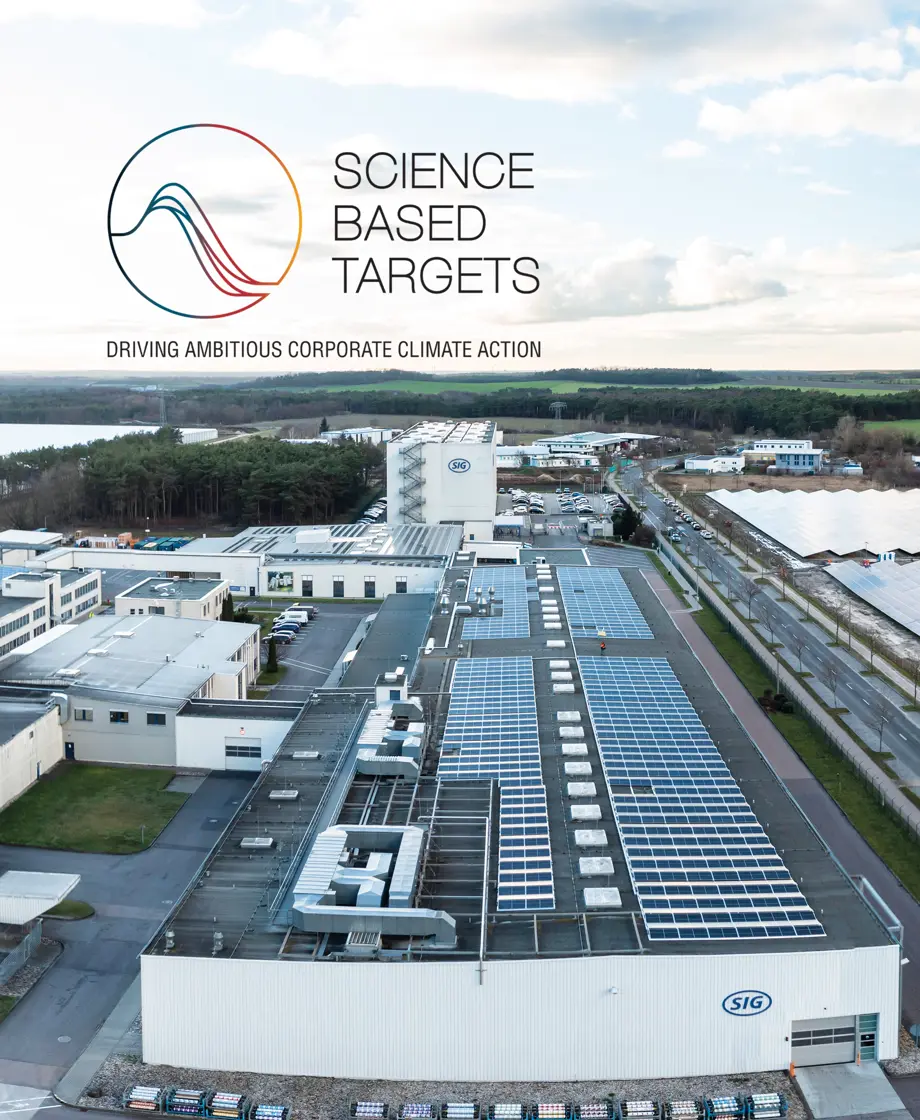This packaging does not exist… yet.
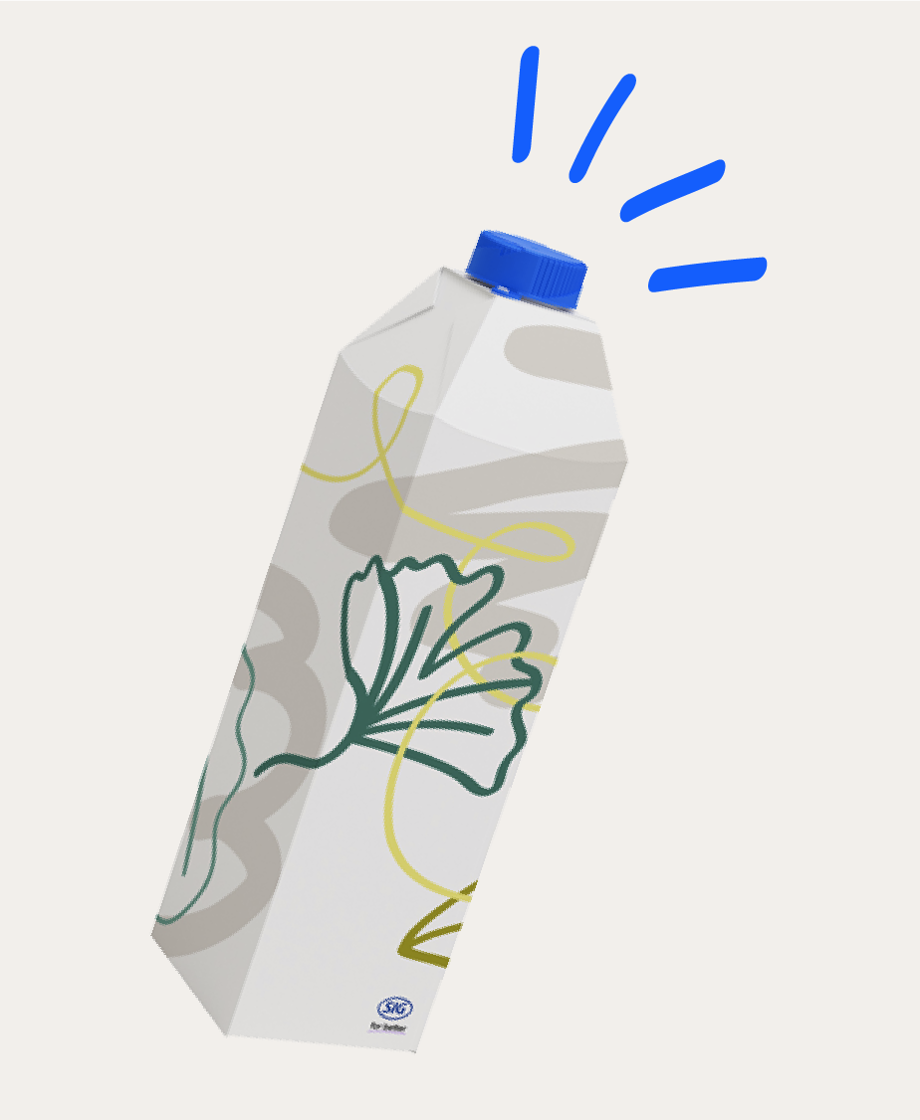
But one day it will, and it will:
- Remove more carbon from the atmosphere than is emitted during its life cycle.
- Be made from endlessly renewable materials and end the use of aluminum.
- Bring safe, healthy nutrition to everyone.
- Be fully and easily recyclable – anywhere in the world.
Getting there will stretch us further than we have ever gone.
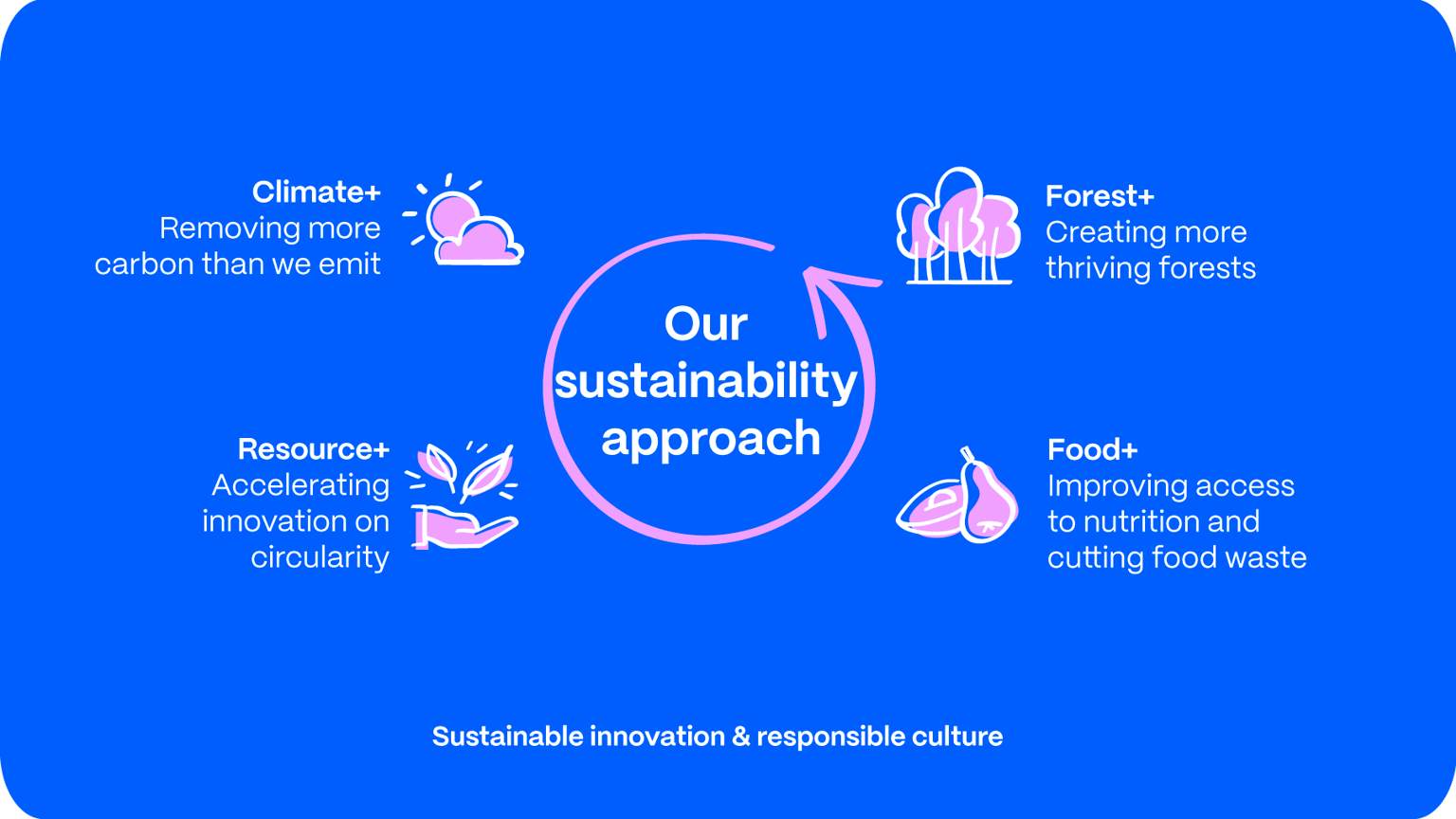
Our sustainability approach is our roadmap for better
Because sustainability is a journey, and this is ours. It’s not an easy one, but we are determined to overcome challenges in our quest to develop net positive packaging solutions.
Our sustainability commitments are integral to our business strategy, our Corporate Compass. They represent how we will give back more than we take. To have a net-positive impact on people and the planet. To create lasting change.
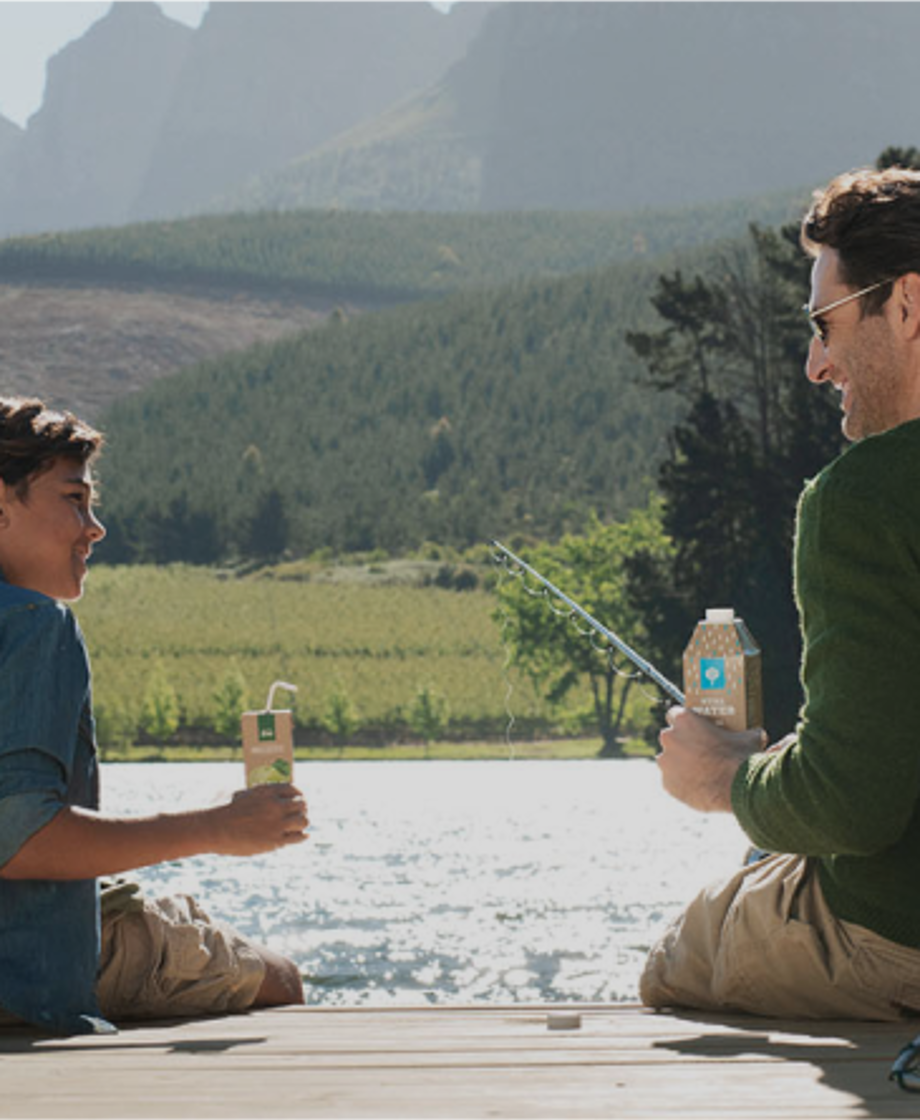
Climate+
Removing more carbon than we emit.
We are committed to reducing our greenhouse gas (GHG) emissions in line with 1.5° climate science, taking more carbon from the atmosphere than our value chain emits, and pioneering packaging that removes more carbon from the atmosphere than is emitted during its lifecycle.

Forest+
Creating more thriving forests.
We are committed to maintaining 100% of the forest area we source from and support the creation, restoration, protection, or improved management of an additional 650,000 hectares of sustainable forest by 2030. We will continue to ensure all our cartons can carry the FSC™ label (FSC™ C020428) and help customers communicate it.
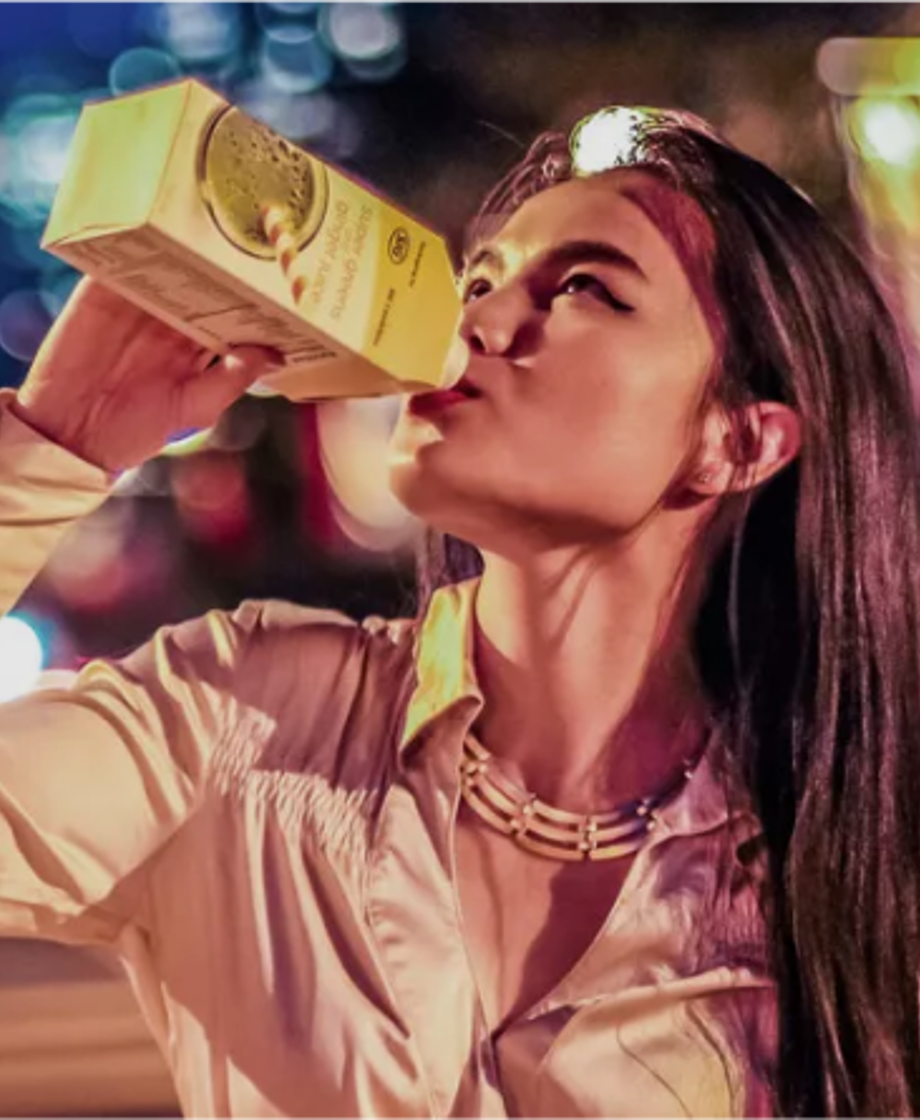
Resource+
Accelerating innovation on circularity.
We are committed to leading the way towards a fully circular packaging system. Our ambition for our packs is that one day, they are made exclusively from renewable or recycled materials, and that every pack we make gets recycled.
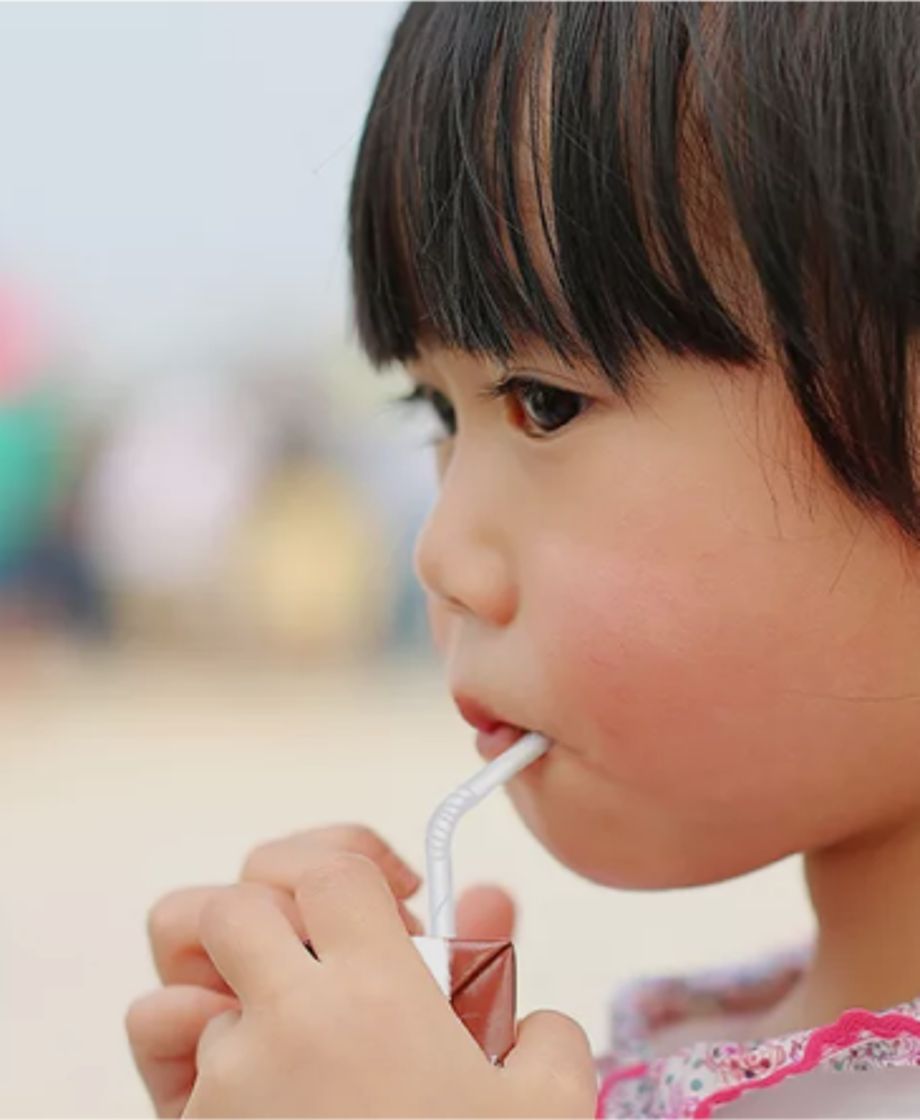
Food+
Improving access to nutrition & cutting food waste.
We are committed to increasing the volume of nutritious food and beverage products brought to consumers via our packs and continuing to reduce the amount of food and drink lost during filling, storage, transport, and consumption.
Our strategy is underpinned by our foundational action areas:
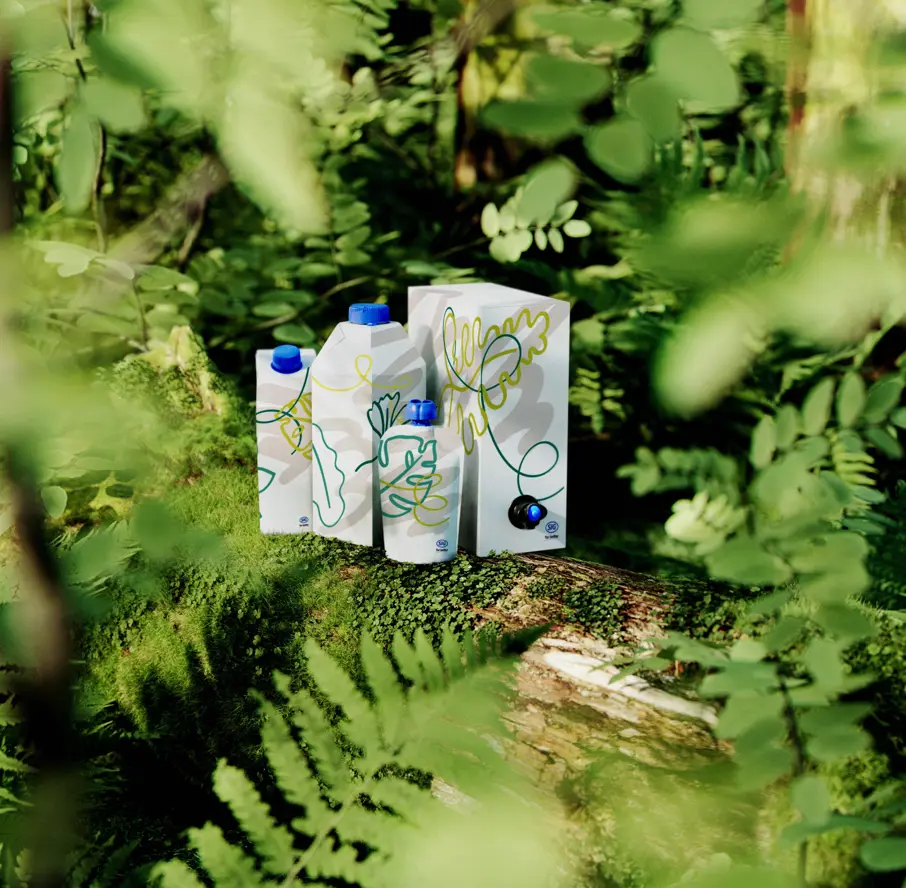
Sustainable innovation
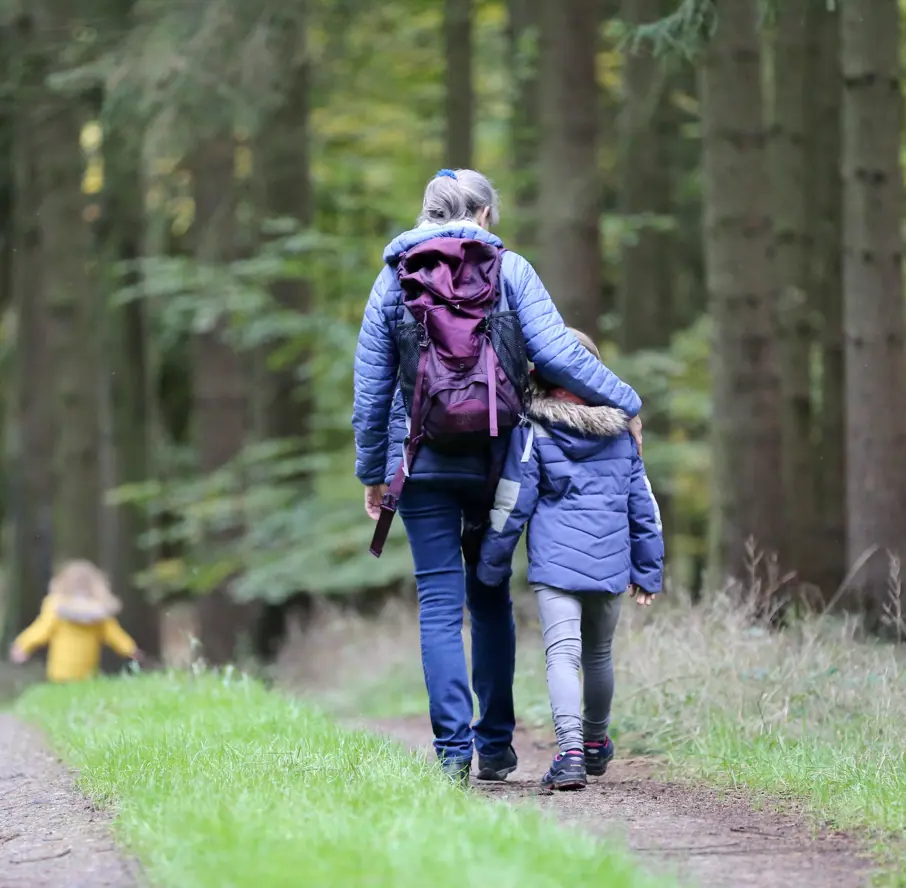
Responsible culture
Sustainability is nothing new at SIG
We have always created packaging that delivers safe, affordable, shelf-stable nutrition – with a smaller carbon footprint than other packaging types like plastic bottles, glass bottles, or cans, proven by ISO-compliant life-cycle assessments, conducted by the independent Institute for Energy and Environmental Research (IFEU), and critically reviewed by an independent panel.
The further we have travelled, the more ambitious we have become. Now, the path ahead of us stretches out into a vastly more sustainable future. With ambitious targets, we’re leading the way towards a fully regenerative packaging system.
Our starting point
- Standard cartons made of, on average, 75% paperboard, 21% polymers and an ultra-thin layer of aluminum foil
- 28–70% lower carbon footprint than alternative packaging, such as plastic and glass bottles and aluminum cans (according to full comparative life cycle assessments of packaging systems for food, UHT milk, and non-carbonated soft drinks on the European market)
- Third-generation filling machines with an industry-leading waste rate (< 0.5%) through highly efficient filling process
1 Results based on ISO-compliant life-cycle assessment CB-100732c for Europe.
2 Linked to wood residues from paper making via an independently certified mass balance system.
3 FSC™ trademark license code: FSC™ C020428.
4 Via an independently certified mass balance system.
5 Association of Plastic Recyclers.
Latest annual and CR report
Our combined Annual and Corporate Responsibility Report for 2024 details our progress towards our sustainability targets over the last year as we continue on our journey to create packaging for better.
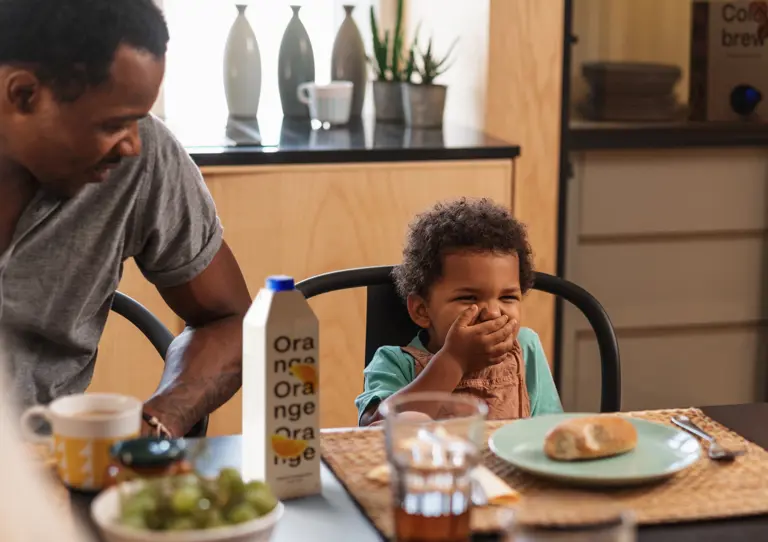
Explore more about sustainability at SIG


Biodiversity


